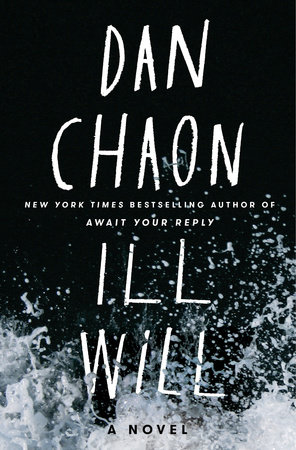Dustin
Tillman is a recently widowed Cleveland-area psychologist who uses hypnotism to
treat patients. Thirty years ago, Dustin’s parents were murdered, and his
adopted brother Rusty was convicted based on Dustin and his cousin Kate’s
testimony. Now Rusty has been exonerated and released, and Dustin fears that
Rusty might want revenge. To add to his worries, his patient-turned-friend,
ex-cop Aquil, suspects that a serial killer is murdering young men in the area
and staging their deaths to look like accidents, and he wants Dustin to
validate his hypothesis. Meanwhile, Aaron, Dustin’s heroin-using teenage son
makes contact with Rusty and finds himself drawn into Aquil’s investigation,
all while learning some very unsettling family history.
Dan Chaon’s
latest novel is a character study in a thriller’s skin. It is creepy,
suspenseful, and unsettling while also offering a multifaceted exploration of
its complex and deeply flawed protagonists.
Chaon
achieves this by balancing multiple perspectives. If frequent POV changes irk
you as a reader, this is not the novel for you. The viewpoint fluctuates not
only between Dustin, his son, and his cousins but also between past and present
and between conventional narration and an epistolary form. Through these
multiple vantage points, Chaon is able to successfully shade his characters and
alter readers’ perceptions of them. For example, in the segments he narrates in
the present, Dustin comes across as unfortunate and put-upon, forever unable to
finish his sentences as friends and patients besiege him with their problems.
But through Aaron’s eyes, he comes across as out-of-touch and a bit pathetic.
Meanwhile, Kate and her twin sister’s segments show him to be extremely naïve as
a child, and his own way, more off-putting than Rusty, whose bad-boy image and
all-for-show mock-embrace of Satanism made him a likely suspect when family
members turned up dead.
These
shifts in perspective and perception work well to advance the idea that memory
is malleable. Therein lies the book’s true horror: the notion that those who are
privy to monstrous truths may not be able to honestly recollect them. Chaon
uses the 1980s Satanic ritual abuse panic as an entry point for fleshing out
this theme, and while that occupies an important place in the backstory, it is
otherwise underplayed. Considering how many people were maligned by the
fantasies of prosecutors and social workers and considering how forgotten the
panic is today, it really could have benefitted from more emphasis here.
In place
of that Chaon, who is capable of writing tightly controlled prose when the mood
strikes him, too often lets his writing become self-indulgent. Between
disjointed journal entries, drug-fueled musings, and a lot of distractingly unorthodox
typography, there is too much here that, while stylistically distinct,
contributes precious little and undermines the book’s otherwise-excellent
tension. Moreover, Ill Will builds
toward a conclusion that is as contrived as it is unsatisfying.
Though
Chaon’s rich characterization and skillful treatment of tension and theme can’t
mask all of the novel’s shortcomings, Ill
Will is still two-thirds of a good read and worthwhile for its treatment of
memory alone.
7.75/10

No comments:
Post a Comment